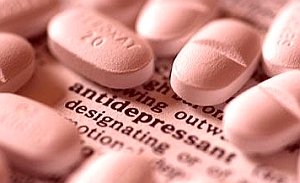
An antidepressant a day keeps sickle cell disease at bay
Singapore: A study by researchers at the University of Michigan Medical School, US, found that antidepressant drug tranylcypromine (TCP) can reverse the effects of sickle cell disease in mice and human red blood cells.
Scientists at the university have been studying the basic biology of the condition for three decades with funding from the National Institutes of Health (NIH). Their research findings have been published in Nature Medicine and paves the way for clinical trials.
Dr Doug Engel, senior author of the study and chair of the university's Department of Cell and Developmental Biology, said that, "This is the first time that fetal hemoglobin synthesis was re-activated both in human blood cells and in mice to such a high level using a
drug, and it demonstrates that once you understand the basic biological mechanism underlying a disease, you can develop drugs to treat it."
He also added, "Out of an effort to discover the details of how hemoglobin is made during development, not with an immediate focus on curing sickle cell anemia, but just toward understanding it."




